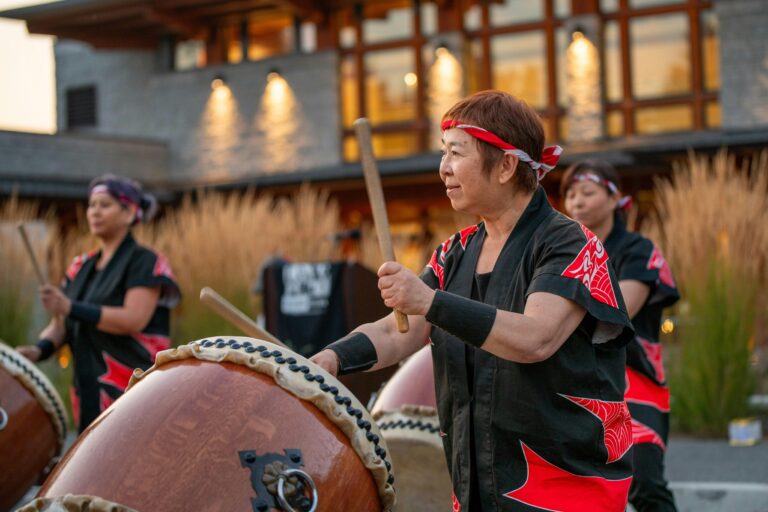If you are looking for How to Write a Song for a Specific Occasion then i guess you are on the right page because here in this blog post we are going to give you a blueprint that will help you write song for any events and occassions, just make sure you read this blog post to the end.
Writing a song for a specific occasion can be a deeply fulfilling experience, allowing you to capture the essence of a moment or event in a unique and memorable way. Whether you’re a seasoned songwriter or just starting out, crafting a song tailored to a particular event requires a blend of creativity, understanding, and technical skill. In this guide, we’ll explore ten essential tips to help you write a song that resonates perfectly with any special occasion.
1. Understanding the Occasion: Why Context Matters
Define the Occasion
Before you put pen to paper, it’s crucial to have a clear understanding of the event for which you’re writing the song. Is it a wedding, a birthday party, a corporate event, or perhaps a personal milestone like a graduation? Each occasion has its own significance and atmosphere, which should influence your songwriting process.
Example: Writing a romantic ballad for a wedding will be quite different from composing an upbeat anthem for a graduation. The key is to capture the spirit of the event in your music.
Research the Event
Take the time to gather details about the event. What are the key themes? Who is the audience? Are there any specific traditions or sentiments associated with the occasion? This research will provide you with valuable insights to tailor your song appropriately.
Tip: If you’re writing for a specific person or couple, learn about their preferences, experiences, and any personal anecdotes that could add a unique touch to your song.
2. Setting the Tone: Match Your Mood to the Occasion
Choose the Right Genre
Selecting the right genre is fundamental to setting the tone of your song. For a joyous occasion like a wedding, a romantic ballad or an upbeat love song might be appropriate. Conversely, a reflective or inspiring song could be perfect for a graduation or a memorial service.
Example: A lively pop song could be ideal for a birthday party, while a classical piece might suit a formal event.
Establish the Right Atmosphere
Your song’s atmosphere should complement the occasion. Use tempo, melody, and harmony to create the desired emotional impact. For a somber event, you might opt for a slower tempo and minor keys, whereas a festive event might call for a faster pace and major keys.
Tip: Experiment with different musical elements to find the right balance that reflects the mood you want to convey.
3. Crafting the Lyrics: Tailoring Your Message
Personalize Your Words
The lyrics are the heart of your song and should reflect the specifics of the occasion. Include personal touches or relevant details that make the song unique to the event. This could be references to shared experiences, important milestones, or even inside jokes.
Example: For a wedding, you might include verses about the couple’s journey together, while for a corporate event, you could highlight achievements and future goals.
Structure Your Song
A well-structured song is easier for listeners to follow and appreciate. Typically, a song includes verses, a chorus, and a bridge. Each section should build on the previous one, creating a cohesive narrative or theme.
Tip: Ensure your chorus captures the essence of the occasion and is memorable. This is often the most impactful part of the song.
4. Melodic Choices: Creating a Memorable Tune
Compose with Purpose
When creating a melody, think about how it supports the lyrics. The melody should enhance the emotional tone of the song and complement the lyrics’ message. A strong, catchy melody can make your song more memorable and impactful.
Example: A soaring melody might work well for an inspirational song, while a gentle, flowing melody could suit a romantic ballad.
Utilize Musical Techniques
Incorporate various musical techniques such as harmony, counterpoint, and rhythmic patterns to add depth and interest to your song. These elements can help underscore the song’s theme and enhance its emotional resonance.
Tip: Experiment with different chord progressions and rhythms to find what best fits the occasion and the mood you’re aiming for.
5. Instrumentation and Arrangement: Enhancing the Song’s Impact

Select Appropriate Instruments
The choice of instruments can greatly affect the song’s overall feel. For a lively event, you might use upbeat instruments like guitars, drums, and keyboards. For a more subdued or formal occasion, consider classical instruments or acoustic arrangements.
Example: A string quartet could add a touch of elegance to a wedding, while a full band might be perfect for a celebration.
Arrange with Intention
Arrange your song to highlight its most important elements. Pay attention to dynamics, transitions, and the overall flow. The arrangement should enhance the song’s message and ensure that each section is clear and impactful.
Tip: Consider the event’s setting when arranging your song. For a large venue, you might need a more elaborate arrangement, while a smaller setting might benefit from a simpler, more intimate arrangement.
6. Personalization: Adding Unique Touches
Incorporate Personal Elements
Adding personal elements to your song can make it more meaningful and memorable. This could include specific references to the people involved, inside jokes, or unique experiences that relate to the occasion.
Example: If writing for a friend’s birthday, mention shared memories or significant moments in your lyrics.
Engage the Audience
To make your song resonate with the audience, consider their expectations and experiences. Write lyrics and melodies that they can relate to and enjoy. Engaging the audience helps ensure that your song has a lasting impact.
Tip: Think about what will make the song special for those who are listening. How can you make them feel connected to the event through your music?
7. Revisions and Feedback: Perfecting Your Song
Revise Thoughtfully
Revising your song is crucial to ensure it’s polished and effective. Review your lyrics, melody, and arrangement to identify any areas that might need improvement. Make changes that enhance the song without compromising its core message.
Tip: Set your song aside for a while and return to it with fresh ears. This can help you spot areas that need refinement.
Seek Constructive Feedback
Gather feedback from trusted peers, mentors, or even potential audience members. Constructive criticism can provide valuable insights into how your song is received and suggest areas for improvement.
Example: Share your song with fellow songwriters or musicians who can offer professional advice on your composition and performance.
8. Performance Preparation: Delivering Your Song with Confidence
Practice Effectively
Once your song is ready, focus on practicing to deliver it confidently. Rehearse both the performance and the technical aspects, such as playing an instrument or managing your vocal delivery.
Tip: Practice in front of friends or family to simulate a live performance environment and receive real-time feedback.
Engage Your Audience
During the performance, connect with your audience by conveying the song’s emotions and message. Engage with them through eye contact, body language, and an authentic delivery.
Example: If performing at a wedding, show your genuine emotion and enthusiasm to enhance the experience for the couple and their guests.
9. Recording Tips: Capturing Your Song Professionally
Choose the Right Recording Environment
To achieve a high-quality recording, select a suitable environment. A quiet, controlled space with minimal background noise is ideal. If recording at home, consider investing in good-quality recording equipment and soundproofing.
Tip: Test different recording setups to find the best acoustics for your song.
Utilize Recording Techniques
Apply basic recording techniques to ensure your song sounds professional. Pay attention to mic placement, levels, and mixing. Consider adding effects or editing to enhance the final product.
Example: Use EQ and reverb to polish your sound and ensure clarity and balance in the recording.
10. Final Touches: Ensuring Your Song Meets the Occasion
Double-Check Details
Before finalizing your song, review all the details to ensure it aligns perfectly with the occasion. Make sure the lyrics, melody, and arrangement reflect the event’s spirit and your intended message.
Tip: Listen to your song from start to finish to ensure it flows smoothly and delivers the desired impact.
Plan for Presentation
Consider how you’ll present your song at the event. Whether it’s a live performance or a recorded playback, plan the presentation to complement the occasion and enhance the overall experience.
Example: If presenting a song at a wedding, think about how you’ll introduce it and set the stage for a memorable performance.
5 Mistakes People Make When Writing a Song for a Specific Occasion and How to Overcome Them
Writing a song for a special occasion is a unique challenge that combines creativity with sensitivity. However, even experienced songwriters can fall into common traps. Here are five frequent mistakes people make and practical solutions to ensure your song hits the right notes.
1. Ignoring the Occasion’s Specifics
Mistake: One of the most significant errors is not fully understanding the nature of the event. Failing to tailor your song to the specific occasion can result in a piece that feels generic or out of place.
How to Overcome It:
- Research Thoroughly: Gather as much information as possible about the event, including its purpose, audience, and any unique aspects. This might involve talking to the event organizers or the people involved.
- Incorporate Specific Details: Use your research to weave in personalized elements. For a wedding, include anecdotes about the couple; for a corporate event, highlight key achievements or company values.
Example: For a wedding, instead of writing a generic love song, reference personal moments or inside jokes that make the song uniquely meaningful for the couple.
2. Choosing the Wrong Genre or Tone
Mistake: Selecting a genre or tone that doesn’t fit the occasion can undermine the impact of your song. For example, a high-energy pop song may not be appropriate for a somber memorial service.
How to Overcome It:
- Match the Mood: Consider the atmosphere of the event. Choose a genre and tone that aligns with the occasion’s overall feel. For a joyful celebration, an upbeat genre like pop or country might be suitable, while a reflective event might call for a more subdued genre like classical or acoustic.
- Consult with the Host: If you’re unsure, ask the event organizers for their preferences or any specific guidelines they might have.
Example: For a retirement party, a lively, upbeat song celebrating the retiree’s career and achievements would be more appropriate than a slow, melancholy ballad.
3. Overcomplicating the Lyrics
Mistake: Some songwriters make the mistake of overcomplicating their lyrics, resulting in a song that feels confusing or cluttered. This can be especially problematic if the occasion calls for clear, heartfelt messaging.
How to Overcome It:
- Keep It Simple: Focus on clear, direct language that communicates your message effectively. Avoid overly complex metaphors or intricate wordplay that might distract from the main message.
- Focus on Emotion: Ensure that your lyrics convey the emotions relevant to the occasion. Sometimes, simplicity can be more powerful and relatable than elaborate language.
Example: For a graduation, use straightforward language to express pride and encouragement, rather than intricate verses that might overshadow the sentiment.
4. Neglecting the Song’s Structure
Mistake: Failing to adhere to a coherent song structure can lead to a disjointed piece that lacks impact. A song with a weak structure can confuse listeners and diminish the overall effectiveness.
How to Overcome It:
- Follow a Classic Structure: Stick to a recognizable song structure, such as verse-chorus-verse-chorus-bridge-chorus. This helps in maintaining flow and ensuring that the song is engaging and easy to follow.
- Edit and Revise: Review your song to ensure that each section transitions smoothly. Make revisions as needed to improve the overall structure and coherence.
Example: If your song includes a bridge, make sure it provides a meaningful contrast or development from the verses and chorus, rather than feeling like an unrelated addition.
5. Neglecting the Performance Aspect
Mistake: Focusing solely on the songwriting without considering how the song will be performed can lead to issues when it comes time to present the song. A song that sounds great on paper may not always translate well to live performance.
How to Overcome It:
- Practice and Rehearse: Spend time rehearsing your song, paying attention to how it feels to perform. Make adjustments to ensure that it translates well in a live setting.
- Plan Your Presentation: Think about how you will introduce and perform the song. Consider elements such as stage presence, audience engagement, and any necessary equipment or setup.
Example: For a live performance at a wedding, practice delivering the song with emotional sincerity and make sure your equipment is set up properly to ensure a smooth performance.
By addressing these common mistakes and implementing the suggested strategies, you can enhance your songwriting process and create a song that truly resonates with the occasion. Whether you’re a seasoned songwriter or just starting out, these tips will help you craft a memorable and impactful song for any special event.
FAQs
What is the best genre for writing a song for a wedding?
For weddings, genres like romantic ballads, classical, or acoustic are popular choices. The genre should reflect the couple’s personal taste and the event’s tone.
How can I make my song more personal?
Include specific details about the event or the people involved in your lyrics. Personal anecdotes and references to shared experiences can make your song more meaningful.
What should I do if I’m not confident in my performance?
Practice thoroughly and consider performing in front of friends or family before the event. This can help build your confidence and provide valuable feedback.
How can I ensure my song sounds professional?
Invest in good-quality recording equipment, and pay attention to recording techniques and mixing. If possible, seek feedback from professionals to ensure a polished final product.
How long should my song be?
The length of your song depends on the occasion and your message. Generally, aim for a duration that fits comfortably within the event’s schedule and maintains the audience’s attention.
Conclusion
Writing a song for a specific occasion is a powerful way to commemorate an event and create lasting memories. Whether you’re celebrating a wedding, honoring a milestone, or capturing the essence of a special event, the process of crafting a personalized song involves a careful blend of creativity, empathy, and technical skill.
Throughout this guide, we’ve explored essential tips to help you write a song that resonates deeply with its intended audience. From understanding the occasion and setting the right tone, to crafting meaningful lyrics and choosing the appropriate melody and arrangement, each step is crucial in ensuring your song’s success.
Avoiding common mistakes such as ignoring the occasion’s specifics, choosing the wrong genre or tone, overcomplicating lyrics, neglecting song structure, and overlooking performance aspects can make a significant difference in your songwriting journey. By focusing on these areas and implementing the strategies outlined, you can create a song that not only captures the spirit of the event but also leaves a lasting impression on its listeners.
Remember, songwriting is both an art and a craft. It requires a deep understanding of the event, a connection with the audience, and a commitment to honing your skills. As you embark on this creative endeavor, keep in mind that your goal is to craft a piece that is both meaningful and memorable.
We hope these tips and insights help you navigate the process of writing a song for any occasion with confidence and creativity. Whether you’re a seasoned songwriter or a newcomer to the craft, the principles outlined here can guide you in creating songs that celebrate, inspire, and connect.
Happy songwriting!


